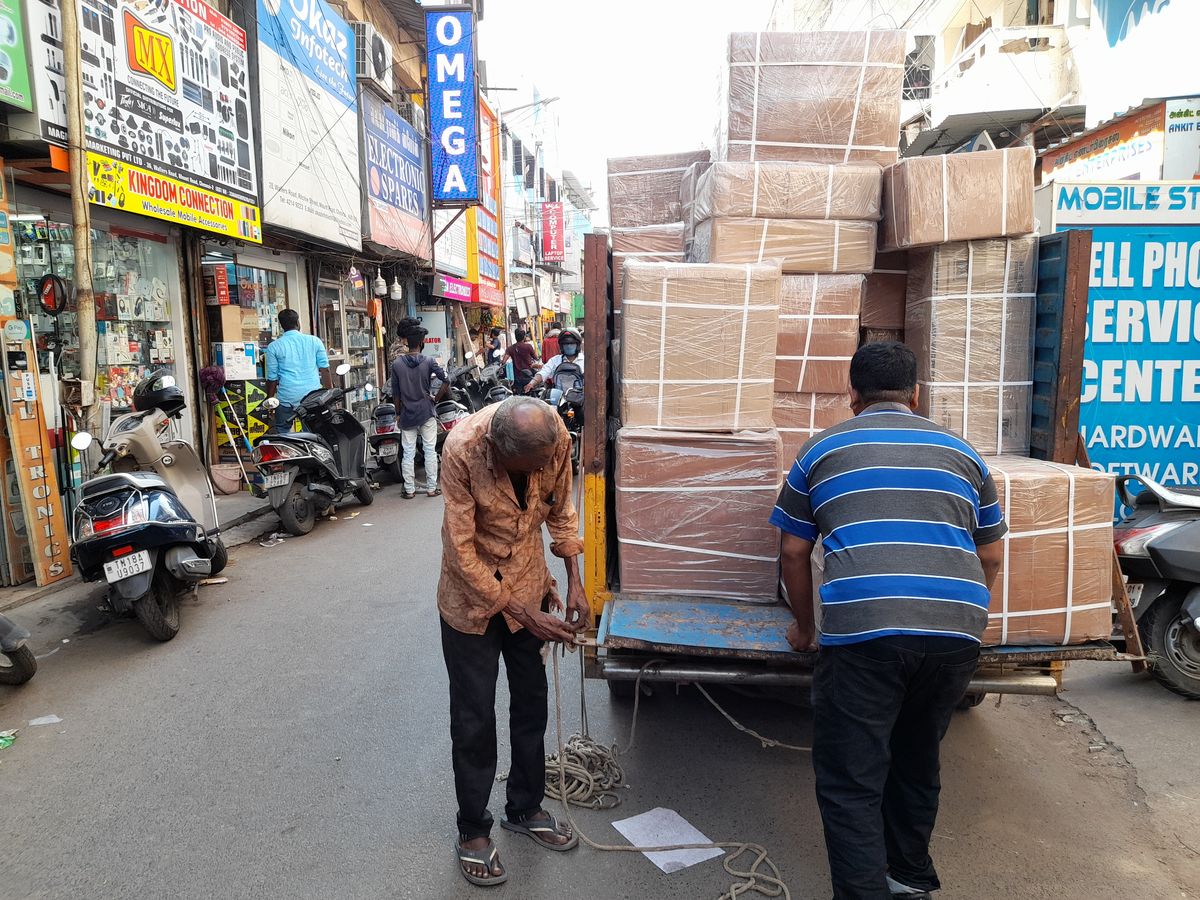Anti-China sentiments that gained momentum across India in 2020 have resulted in more than just banned apps and people breaking TVs on the streets. In places like Ritchie Street, the electronic market and hub of Chennai, retailers – big, medium and small alike – have been hit hard, worsening the state of affairs for businesses that were already declining.
A reduction in Chinese imports poses a problem for the Ritchie Street retailers – 70% of goods in over 2,000 shops here are from China. The shops cover almost every inch of the market where each day, thousands struggle to navigate the maze of roads amidst two-wheelers and load-carrying vans.
However, even before the repercussions of Indo-China skirmishes at the Galwan Valley hit this market, importing from China remained dull.  Mukesh Khubchandani, President of All India Radio and Electronics Association (AIREA) (South Zone) and the owner of Enson Electronics, said, “I have been importing from China for the last 10-15 years. However, since the last two years, it has become increasingly difficult to import from there.”
Mukesh Khubchandani, President of All India Radio and Electronics Association (AIREA) (South Zone) and the owner of Enson Electronics, said, “I have been importing from China for the last 10-15 years. However, since the last two years, it has become increasingly difficult to import from there.”
Another retailer expressed discontent in the continuing delay of supplies from China. “We usually order once a month. Goods are supplied anytime between three-four weeks afterwards. Now it takes months,” he said.
“Chinese goods are high in demand. Reduction in their supply adversely affects business, as retailers then have to procure locally to compensate, thus increasing the cost of the product,” R. Chandalia, the Secretary of Chennai Infotech and Electronics Association said.
The China factor
India’s dependence on China is significant. Data from the Directorate General of Commercial Intelligence and Statistics states that of Rs 1,15,558 crore worth of electrical components imported, one-third was from China in 2019.
The retailers say that the finish of Chinese products is better when compared to Indian-made products, which also makes them the customer’s first preference.
Govind Vajpayee, a member of AIERA and the owner of Sonata Electronics, cites the requirements of customers to be a major reason for the dominance of products made in China. “Everyone demands high quality as well as low cost. China provides that,” he said.
Small-scale vendors have been affected too. V Shanthi, an elderly woman who sells earphones and other accessories in a crowded corner, buys her goods from a nearby complex. Small vendors cannot bargain with sellers even when the product costs are higher than usual, Shanthi says.
However, Shanthi has to give in to her customers’ bargain. “If I buy earphones for Rs 170, I sell it for Rs 200. But people sometimes buy it only for Rs 180, so I hardly make a profit,” she said.
Way forward
Strengthening the Micro Small and Medium Enterprises (MSME) can reduce dependence on Chinese goods, V. Sankar, the vice-president of AIREA (South Zone), feels. He stated that the State must adequately fund local production and support entrepreneurs.

Retailers like Mukesh Khubchandani feel that there has been a tremendous improvement in Indian product finish over the years and that the government is moving in the right direction. But retailers like Prabhav Malhotra, owner of Kailash Enterprises, said that it is not practical to replace Chinese goods with Indian goods, considering the present State support. “Even if it is done, business will take some time to regenerate,” he said.
R. Sai Venkatesh is a student of journalism at the Asian College of Journalism, Chennai.
All images have been provided by the author.

